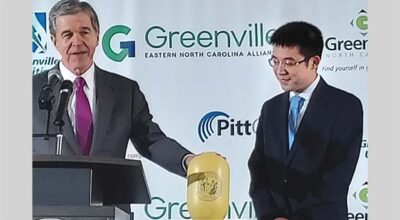Turn back the hands of time
Published 5:25 pm Friday, October 31, 2014
It’s that time of year — time to set clocks, watches and other time pieces back an hour at 2 a.m. Sunday, or earlier if one doesn’t want to wake up, get out of bed and set those time pieces at 2 a.m. when daylight saving time ends.
It’s time for the “fall back” part of the “spring ahead, fall back” adage to occur. Some folks who forget to adjust their clocks and watches accordingly early Sunday morning or late tonight could show up at church an hour early or report to their jobs 60 minutes too soon. Most electronic devices — cellphones, Ipads and computers — automatically adjust their clocks in the fall and in the spring.
Daylight saving time — known as summer time in the British Isles — is the practice of moving timepieces ahead by an hour during the “lighter” months of the year (second Sunday in March to the first Sunday in November) so mornings have less daylight and evenings have more daylight.
George Vernon Hudson first proposed the modern concept of daylight saving time in 1895. Hudson was an English-born astronomer and entomologist who lived his adult years in New Zealand. He was a member of the 1907 Sub-Antarctic Islands Scientific Expedition. Benjamin Franklin, in a somewhat joking manner, proposed the concept of daylight saving time in 1784. Ancient civilizations engaged in a similar practice to modern DST.
Since 2007, daylight saving time has been about four weeks longer because of the passage of the federal Energy Policy Act in 2005. The act extended daylight saving time by four weeks from the second Sunday of March to the first Sunday of November, with expectations it would save about 10,000 barrels of oil each day through reduced use of power by businesses during daylight hours.
Arizona, Hawaii, Puerto Rico, the American Virgin Islands and American Samoa do not observe daylight saving time.
And while you are changing the time on those timepieces, go ahead and change the batteries in your smoke detectors.






